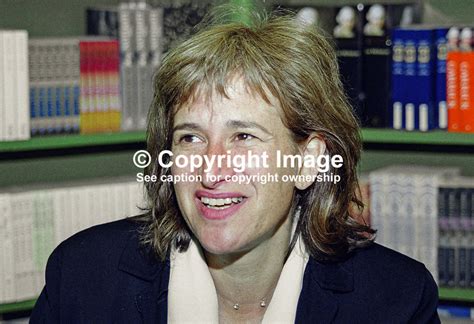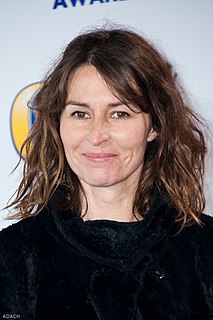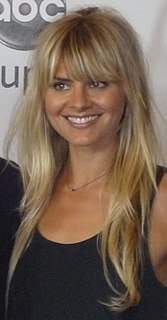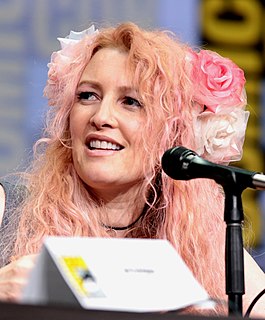A Quote by Melissa Bank
Whenever people say they didn't like the main character of a book, they mean they didn't like the book. The main character has to be a friend? I don't get that.
Related Quotes
In the biographical novel, there's only one person involved. I, the author, spend two to five years becoming the main character. I do that so by the time you get to the bottom of Page 2 or 3, you forget your name, where you live, your profession and the year it is. You become the main character of the book. You live the book.
If you want to write about a person who isn't nice, people say, "This is a bad book. It's about somebody I couldn't stand." But that's not the point. You don't have to like a character to like a book. Most of the time, people would misjudge and say, "I didn't like the book." No, you didn't like the character. That doesn't make it any less interesting of a book. In fact, to me, it makes it more interesting.
I first heard the term "meta-novel" at a writer's conference in Tulsa, Oklahoma. The idea is that even though each book in a series stands alone, when read collectively they form one big ongoing novel about the main character. Each book represents its own arc: in book one of the series we meet the character and establish a meta-goal that will carry him through further books, in book two that meta-goal is tested, in book three - you get the picture.
If you think of even Tolstoy or a book like 'Anna Karenina,' you go from character to character, and each section is from the third person perspective of a different character, so you get to see the whole world a little more kaleidoscopically that way. That's traditional narrative manner, and I haven't done a book like that before, but I enjoyed it.
I don't know quite how a story develops in my head. It is a bit chaotic. If I am working on a series, one of the main characters at least is already in existence as well as some setting and minor characters. Finding the other main character can be a challenge. Sometimes this character already exists in a minor role in another book.
I never thought I could write this much and now that it's coming to an end, I feel sad that I have to stop, sort of the way you feel at the end of a really good book and you know you're going to miss the main character. But in this case, the main character is me! Myself. Joe (formerly JoDan) Bunch. —Joe Bunch
When I'm following what a character does in a book I don't have to think about my own life. Where I am. Why I'm here. My moms and my brother and my old man. I can just think about the character's life and try and figure out what's gonna happen. Plus when you're in a group home you pretty much can't go anywhere, right? But when you read books you almost feel like you're out there in the world. Like you're going on this adventure right with the main character. At least, that's the way I do it. It's actually not that bad. Even if it is mad nerdy.


































